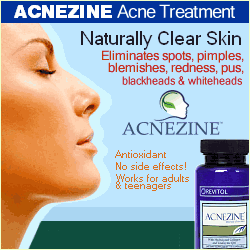Acne Cysts And Their Treatment
Acne Cysts And Their Treatment
Deep cysts, inflammation, extensive damage to the skin and scarring characterize severe acne. It often requires an aggressive treatment regimen and should be treated by a dermatologist. Severe forms of acne can require years of treatment and may experience one or more treatment failures. However, almost every case of acne can be successfully treated. There are five popular treatments for acne cysts. There are many effective treatments that are available currently. Drainage and surgical excision, inner lesion corticosteroid injection, isotretinoin (a potent drug for treating severe cystic acne), oral antibiotics, and oral contraceptives are the most popular treatments.
Some people may choose a more natural treatment for severe acne, which will also be covered briefly in this article.
Drainage and extraction, or acne surgery as it is also called, should not be performed by patients and is used on some large cysts that do not respond to medication and require drainage and extraction. Dermatologists are trained in the proper technique and perform acne surgery under sterile conditions. Patient attempts to drain and extract acne cysts, by squeezing or picking, can lead to infection, worsening of the acne and scarring. When an acne cyst becomes severely inflamed, there is a good chance it will rupture and scarring will occur. To treat these severely inflamed cysts and prevent scarring, dermatologists may inject such cysts with a diluted corticosteroid. This lessens the inflammation and promotes healing of the acne cyst. An inner lesion corticosteroid injection works by melting the cyst over the course of a few days.
Isotretinoin is the most effective treatment known today for severe acne and acne that is resistant to other medications and treatments. Isotretinoin is a form of vitamin A, a synthetic creation, which comes in a pill form. It is administered once or twice a day for anywhere from sixteen to twenty weeks total. There are many possible side effects that may occur while undergoing this therapy. Possible side effects include severe pain in the chest or abdomen, trouble swallowing or painful swallowing, severe headache, blurred vision or dizziness, bone and joint pain, nausea or vomiting, diarrhea or rectal bleeding, depression, dryness of the skin, eyes and nose, and thinning hair.
While taking isotretinoin patients are monitored closely by their healthcare provider through follow up appointments.
Oral antibiotics have been a basis of therapy for severe acne for many years. Like topical antibiotics, oral antibiotics work to reduce the "P. acnes". "P. Acnes" are normal residents on the skin, which decreases inflammation. Treatment with oral antibiotics usually begins with a high dosage, which is eventually reduced as the acne resolves. Over time, the "P. acnes" bacteria can become resistant to the treatment. When resistance occurs, another antibiotic can be prescribed or other treatment options may need to be explored.
Oral contraceptives have been shown to effectively clear acne in women by suppressing the overactive sebaceous glands. Oral contraceptives can be used as long-term acne therapy; however, this medication should not be prescribed to women who smoke, have a blood clotting disorder, are older than thirty-five or have a history of migraine headaches, without the advice of a gynecologist.
Spironolactone, a synthetic steroid, may be used in combination with oral contraceptives to treat acne in adult females. Spironolactone inhibits androgen, hormones that stimulate oil glands in addition to other effects on the body, production. There are possible side effects that may accompany Spironolactone treatment. A few side affects include irregular menstruation, breast tenderness, headache and fatigue.
Some people choose more natural ways to combat cystic acne. Some natural treatments are eating a whole foods diet that consists of only natural foods that have not been chemically or mechanically processed. Yoga or deep relaxation techniques may be used to reduce the amount of stress that is put on the body and the mind. Essential oils are another natural treatment that may be added to the diet of sufferers of severe acne.
These are just a few of the natural methods of treatment for cystic acne. No matter what method of treatment you decide to try you should always consult a professional, whether it is your dermatologist or an herbalist. Your doctor should be able to refer you to a board certified dermatologist if needed.
Click here for detail











0 comments:
Post a Comment